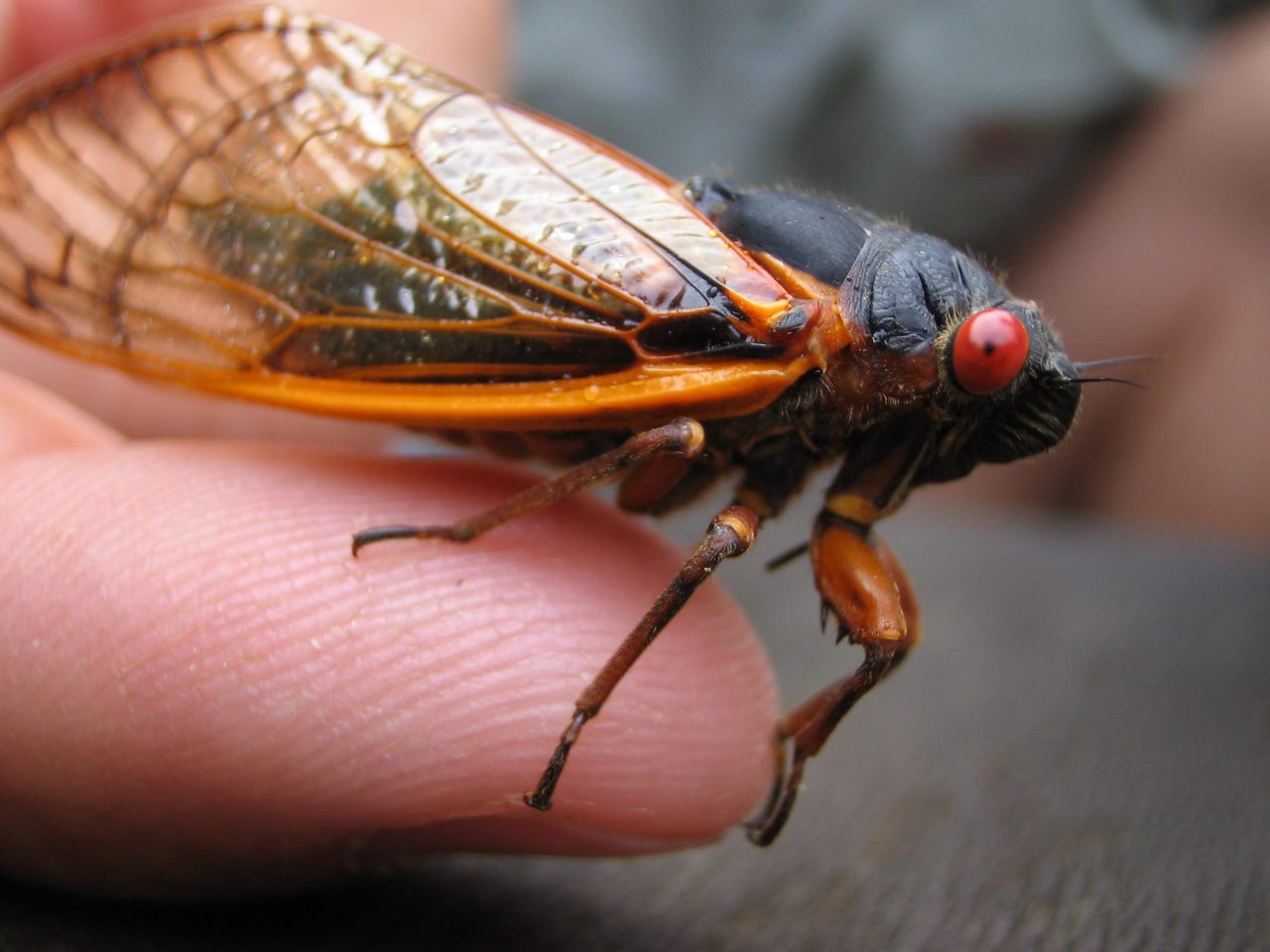If you’ve ever been to the south in the summer, you’ve probably heard the sound of cicadas. It’s difficult to describe – some call it a buzz, others say it’s a chirp or a click – but one thing’s for sure: it’s loud!
For me, the cicada chorus is a comforting sound, reminding me of summer vacations at the beach in Oak Island, North Carolina. These summer cicadas are actually called annual cicadas; however, the cicadas that cause the most buzz are referred to as periodical cicadas.
What’s a Periodical Cicada?
A periodical cicada is a flying insect that spends the majority of its life underground. After birth, they begin to grow and develop while living on tree branches, which provide their nutrients. Once they’ve grown enough, they will fall to the ground and burrow until they find roots to live on. Then, after a period of 13-17 years, these creatures will dig to the surface, shed their exoskeleton (usually on a tree), and begin mating season. This time of emergence and mating is when the cicada sounds will occur.
Where will they be in 2014?
There are more than 20 colonies or “broods” of cicada in the United States. Each of them is in it’s own geographic region and is on a different 13-17 year cycle. According to Cicada Mania, two large broods will emerge this year, one in Louisiana and Mississippi and the other in Iowa, Illinois and Missouri. You can expect to see these periodical cicadas most in the month of May.
What does it mean for my travel plans?
Cicadas should not impact your travel plans too much. However, if you’re in an area where the cicadas are emerging this year, you’ll definitely notice their singing.
A few tips for encountering periodical cicadas:
Firstly, don’t picnic or linger under a tree where cicadas are singing. Next, don’t be afraid of them. Cicadas don’t bite, sting or harm humans. You may see their exoskeletons on trees or on the ground – these are safe too. Finally, try to appreciate their existence. Cicadas are one of the most interesting insects in America. We wouldn’t call seeing them once-in-a-lifetime, but seeing them emerge is a once-in-13-17-years experience. So, take time to enjoy this unique serenade.











